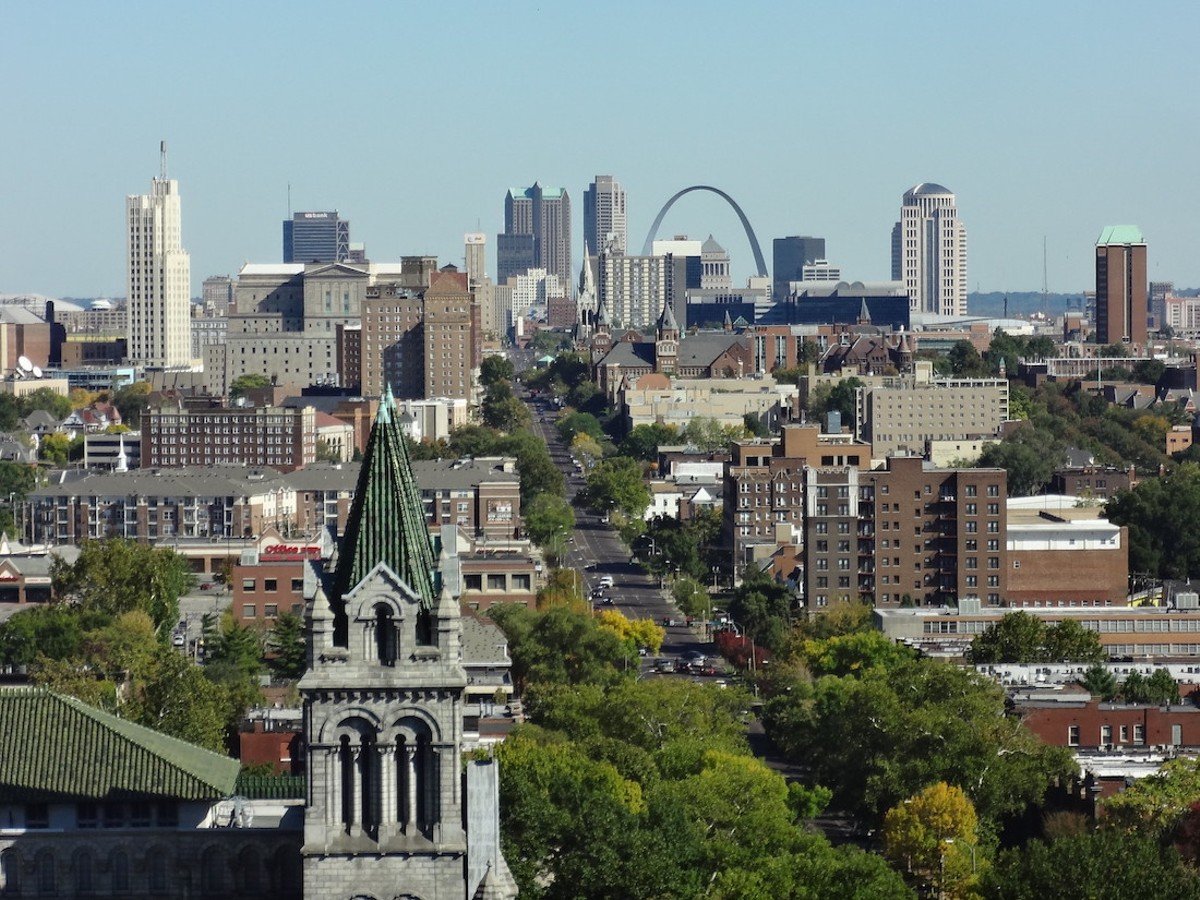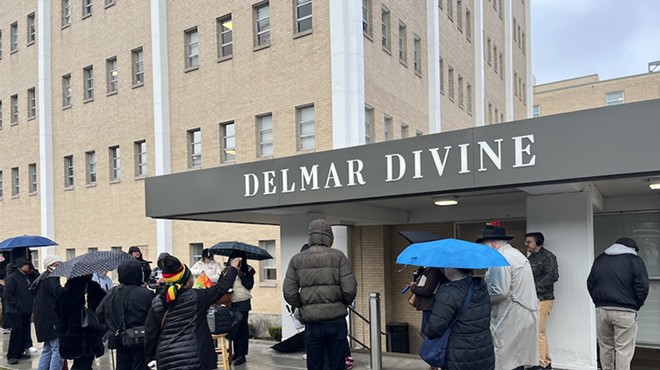The St. Louis Development Corporation (SLDC) began rolling out flashy, new promotional videos last month promoting the use of tax incentives. The videos — produced by public relations firm Candid Marketing, which SLDC has paid $30k per month since 2021 — were released against the backdrop of a report from national experts Good Job First that St. Louis area students are losing out on hundreds of millions of tax dollars due to local governments’ use of tax incentives.
SLDC’s videos boast that incentivized projects between 2017 and 2022 created new jobs and will lead to approximately $53 million of new property tax revenue over 10 years. They further claim this is great for our city and our public schools since new revenue should increase the St. Louis Public Schools (SLPS)’s budget.
However, the promotional campaign leaves out a crucial detail: SLPS lost out on nearly $168 million in revenue during the same time period — money that could have gone towards improving educational outcomes for our city’s children.
Let’s break these numbers down further. Each SLPS student loses out on approximately $1,634 per year, the report says. How much would the revenue reported by SLDC make up for? Only about $187 per student per year. That’s just about one-ninth of what’s been lost per pupil to tax giveaways. Further, SLPS’ figure is produced as part of their annual comprehensive financial report following governmental rules on tax abatement disclosures. It’s official. The SLDC’s figure? It was produced internally with no oversight or supported data provided. Go figure.
The money our children are losing out on should spark a political crisis in this city. So what are our elected officials doing? I’m glad you asked.
Last session, the Board of Aldermen passed Board Bill 64 (now Ordinance 71620) with the promise that it would reform our tax incentive process in St. Louis. The main impetus for this change was not to protect education funding, but federal indictments of three aldermen for accepting bribes related to tax incentives.
Did anything change? Well, sort of. The Tax Increment Financing (TIF) Commission has not met since September 2022 because no proposals have been submitted. Developers have opted for other incentives, such as abatement and community improvement districts. For example, Board Bill 129, sponsored by Alderman Rasheen Aldridge, just recently passed, creating a 10-year, 75 percent tax abatement for a hotel renovation which will result in an approximately $1.6 million loss in revenue to SLPS.
One positive change that came from the ordinance is a required consultation of SLPS on incentives so the district can weigh in on bills affecting their revenue. To date, this legally required consult does not appear to have occurred despite multiple incentives being passed by the Board of the Aldermen.
Indeed, the main outcome of Board Bill 64 is the significant increase in the role and power of SLDC in development proposals. The idea was that the significant role and power of the aldermen led to the abuse of the process cataloged in the indictments. But SLDC was not blameless in that affair, and their current missteps do not inspire confidence.
This bleak picture can be fixed. A small step forward is Alderwoman Alisha Sonnier’s Board Bill 198, which would have required developers to pay outstanding city property taxes before applying for new tax incentives. Unfortunately, aldermen amended the bill to only require them to be current upon entering into the development agreement. Still, this sort of reform could serve to help our schools and curtail deadbeat developers.
The experts at Good Jobs First also recommend shielding SLPS from tax abatements so they only abate payments to the city, not to the schools, and giving the district veto power over any TIF district. That change could generate significant additional revenue to the district, which could be used to tackle problems facing SLPS’ unhoused population — about 20 percent of the student body. Another positive effort by local community groups calls on Washington University in St Louis to make PILOTs — payments in lieu of taxes — on their properties to fund area public schools more appropriately. Since they claim pride in being in St. Louis, shouldn’t they be proud to pay their fair share?
The bottom line: our city’s children are losing out due to our city’s reckless tax incentive policies. SLDC is misrepresenting the benefit of such incentives by ignoring the lost revenue to SLPS. We need our civic leaders to stop the spin and act on policy recommendations that will help our schools and our children.
Ben Conover is a (volunteer) organizer for Solidarity with SLPS, a local group of residents working to support, defend and improve Saint Louis Public Schools. A longtime St. Louisan, Conover has worked on the data side of campaigns to defeat right-to-work laws, raise the minimum wage and clean up Missouri's ethics laws.
The RFT welcomes well-reasoned essays and op-eds on topics of local interest. Contact [email protected] if you've got something to say.
Subscribe to Riverfront Times newsletters.
Follow us: Apple News | Google News | NewsBreak | Reddit | Instagram | Facebook | Twitter | Or sign up for our RSS Feed








